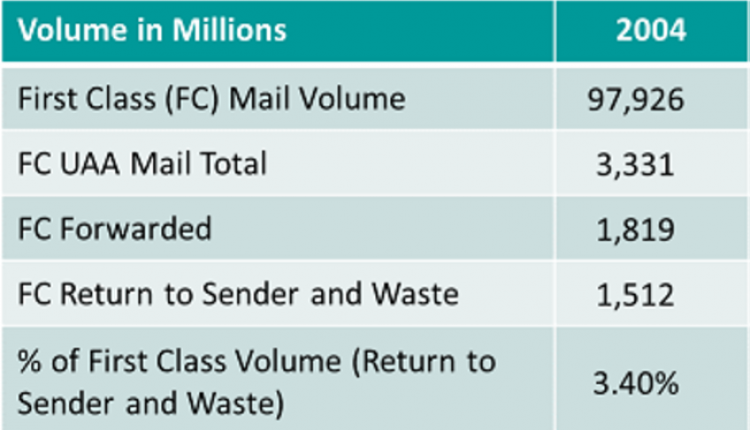"The single biggest problem with communication is the illusion that is has taken place." George Bernard Shaw.
Communication effectiveness is important to our success as managers. Unfortunately, our perception of our communication effectiveness often does not line up with reality.
One of the great management experts of our time has been Dr. Steven Covey, who tragically passed away recently as a result of a motorcycle accident. Dr. Covey illustrated our communication shortcomings in a poll he referenced in his book The 8th Habit. There was a poll of 23,000 employees drawn from a number of companies and industries - here are the disappointing findings:
· Only 37% said they have a clear understanding of what their organization is trying to achieve and why
· Only one in five was enthusiastic about their team's and their organization's goals
· Only one in five said they had a clear "line of sight" between their tasks and their team's and organization's goals
· Only 15% felt that their organization fully enables them to execute key goals
· Only 20% fully trusted the organization they work for
To put the numbers in context, Covey uses a simple metaphor of a soccer team. He says, "If a soccer team had these same scores, only four of the 11 players on the field would know which goal is theirs. Only two of the 11 would care. Only two of the 11 would know what position they play and know exactly what they are supposed to do. And all but two players would, in some way, be competing against their own team members rather than the opponent."
Clearly our communication effectiveness is often deficient. What can we do to get better? I'm glad you asked! Following are seven keys to help us communicate more effectively:
1) Get Personal. I resonate with the John Maxwell quote: "People don't care how much you know until they know how much you care." To communicate effectively, we need to develop meaningful relationships with people and have candid two-way communications. And it's helpful to personalize our communication and explain our messages in terms that people can understand and relate to. This is especially important when trying to communicate vision, goals, and values.
2) Get Specific. Specificity is better than ambiguity whenever possible. Learn to communicate with clarity. Simple and concise is always better than complicated and confusing. We are all very busy - so learning to cut to the chase and hitting the high points is important. Let's weed out the superfluous and make our words count.
3) Have an Open Mind. One of Dr. Covey's important principles from The 7 Habits of Highly Effective People was to "Seek to Understand, Then to Be Understood." To help us better understand, lead, and communicate better, it's valuable to listen and try to understand the opinions and ideas of others - even when at first they seem contrary to ours.
4) Listen! The philosopher Epictetus said, "We have two ears and one mouth so that we can listen twice as much as we speak." I have to confess that I still need lots of improvement in this area - what about you? Effective listening is essential if we are to be an effective communicator. One of the challenges is to really focus on what the other person is saying - not worrying about our next words. The quote by Rochefoucauld applies: "We never listen when we are eager to speak."
5) Replace Ego with Empathy. Nobody really cares about what arrogant leaders communicate. However, when candor is communicated with empathy and caring and not over-inflated ego good things will often happen. As since we live in an often harsh world, kind words are well received. Mother Teresa said it well: "Kind words can be short and easy to speak, but their echoes are truly endless."
6) Know What You Are Talking About. Credibility is important in our communications. People know when we are blowing smoke. It's fine to admit we don't something, but it's not fine to pretend to be an expert when we are not.
7) Apply the 5 "Bs". I ran across the following tips from MariLiza Backstrom that I think can help us be more effective communicators:
Body Language: Pay attention to a person's body language - one study claims that 55% of communication comes from body language, and only seven percent from the words themselves.
Background: It is important to understand the background and perspective of the other person (includes experiences, culture, education, origin, etc.).
Backtrack: To help ensure we understand what the other person means - just ask them! Keep asking and repeating back what you think you heard until you understand clearly.
Beyond Words: Pay attention to the context of the words, and check out facts and circumstances if there are any doubts about the validity of what you think you heard.
Body Tools: This emphasizes that God made us with TWO ears and only ONE mouth for a reason. The saying "the fish die by the mouth" reminds us that those who speak too much and too soon often end up trapped by their own speech.
Use wisely your "listening machine" body tools:
Listen with your ears! Pay attention to words and tone and what is not being said.
Listen with your eyes! Pay attention to body language and circumstances.
Listen with your mind! Pat attention to a person's background and backtrack as needed.
Listen with your heart! Compassion and kindness will enhance two-way communication.
Let me close with a quote from Nitin Nohria, who said, "Communication is the real work of leadership." Good luck to you as you intentionally work on being a more effective communicator - which in turn will help you be a more effective leader and manager!
Wes Friesen, MBA, CMDSM, EMCM, MDC, ICP, CCM,CMA, CM, CFM, APP, PHR is the Manager of Billing, Credit & Special Attention Operations for Portland General Electric, a utility in Portland, Oregon that serves over 825,000 customers. Wes teaches university classes and is a featured speaker at national Conferences like National Postal Forum, MAILCOM, FUSION and others. Wes can be contacted at Wes.Friesen@pgn.com. Check out his personal website for free information (www.wesfriesen.com).
Communication effectiveness is important to our success as managers. Unfortunately, our perception of our communication effectiveness often does not line up with reality.
One of the great management experts of our time has been Dr. Steven Covey, who tragically passed away recently as a result of a motorcycle accident. Dr. Covey illustrated our communication shortcomings in a poll he referenced in his book The 8th Habit. There was a poll of 23,000 employees drawn from a number of companies and industries - here are the disappointing findings:
· Only 37% said they have a clear understanding of what their organization is trying to achieve and why
· Only one in five was enthusiastic about their team's and their organization's goals
· Only one in five said they had a clear "line of sight" between their tasks and their team's and organization's goals
· Only 15% felt that their organization fully enables them to execute key goals
· Only 20% fully trusted the organization they work for
To put the numbers in context, Covey uses a simple metaphor of a soccer team. He says, "If a soccer team had these same scores, only four of the 11 players on the field would know which goal is theirs. Only two of the 11 would care. Only two of the 11 would know what position they play and know exactly what they are supposed to do. And all but two players would, in some way, be competing against their own team members rather than the opponent."
Clearly our communication effectiveness is often deficient. What can we do to get better? I'm glad you asked! Following are seven keys to help us communicate more effectively:
1) Get Personal. I resonate with the John Maxwell quote: "People don't care how much you know until they know how much you care." To communicate effectively, we need to develop meaningful relationships with people and have candid two-way communications. And it's helpful to personalize our communication and explain our messages in terms that people can understand and relate to. This is especially important when trying to communicate vision, goals, and values.
2) Get Specific. Specificity is better than ambiguity whenever possible. Learn to communicate with clarity. Simple and concise is always better than complicated and confusing. We are all very busy - so learning to cut to the chase and hitting the high points is important. Let's weed out the superfluous and make our words count.
3) Have an Open Mind. One of Dr. Covey's important principles from The 7 Habits of Highly Effective People was to "Seek to Understand, Then to Be Understood." To help us better understand, lead, and communicate better, it's valuable to listen and try to understand the opinions and ideas of others - even when at first they seem contrary to ours.
4) Listen! The philosopher Epictetus said, "We have two ears and one mouth so that we can listen twice as much as we speak." I have to confess that I still need lots of improvement in this area - what about you? Effective listening is essential if we are to be an effective communicator. One of the challenges is to really focus on what the other person is saying - not worrying about our next words. The quote by Rochefoucauld applies: "We never listen when we are eager to speak."
5) Replace Ego with Empathy. Nobody really cares about what arrogant leaders communicate. However, when candor is communicated with empathy and caring and not over-inflated ego good things will often happen. As since we live in an often harsh world, kind words are well received. Mother Teresa said it well: "Kind words can be short and easy to speak, but their echoes are truly endless."
6) Know What You Are Talking About. Credibility is important in our communications. People know when we are blowing smoke. It's fine to admit we don't something, but it's not fine to pretend to be an expert when we are not.
7) Apply the 5 "Bs". I ran across the following tips from MariLiza Backstrom that I think can help us be more effective communicators:
Body Language: Pay attention to a person's body language - one study claims that 55% of communication comes from body language, and only seven percent from the words themselves.
Background: It is important to understand the background and perspective of the other person (includes experiences, culture, education, origin, etc.).
Backtrack: To help ensure we understand what the other person means - just ask them! Keep asking and repeating back what you think you heard until you understand clearly.
Beyond Words: Pay attention to the context of the words, and check out facts and circumstances if there are any doubts about the validity of what you think you heard.
Body Tools: This emphasizes that God made us with TWO ears and only ONE mouth for a reason. The saying "the fish die by the mouth" reminds us that those who speak too much and too soon often end up trapped by their own speech.
Use wisely your "listening machine" body tools:
Listen with your ears! Pay attention to words and tone and what is not being said.
Listen with your eyes! Pay attention to body language and circumstances.
Listen with your mind! Pat attention to a person's background and backtrack as needed.
Listen with your heart! Compassion and kindness will enhance two-way communication.
Let me close with a quote from Nitin Nohria, who said, "Communication is the real work of leadership." Good luck to you as you intentionally work on being a more effective communicator - which in turn will help you be a more effective leader and manager!
Wes Friesen, MBA, CMDSM, EMCM, MDC, ICP, CCM,CMA, CM, CFM, APP, PHR is the Manager of Billing, Credit & Special Attention Operations for Portland General Electric, a utility in Portland, Oregon that serves over 825,000 customers. Wes teaches university classes and is a featured speaker at national Conferences like National Postal Forum, MAILCOM, FUSION and others. Wes can be contacted at Wes.Friesen@pgn.com. Check out his personal website for free information (www.wesfriesen.com).












